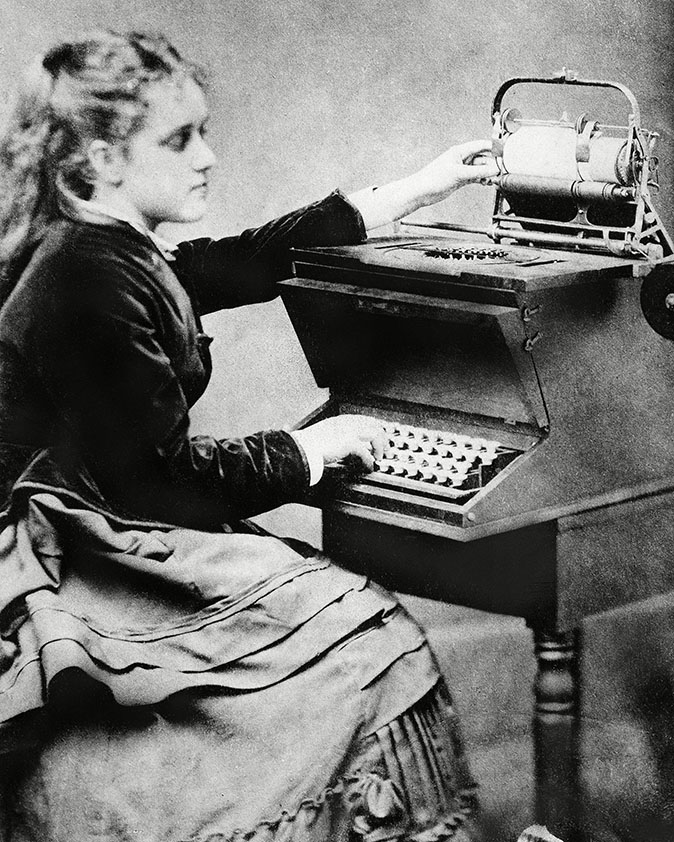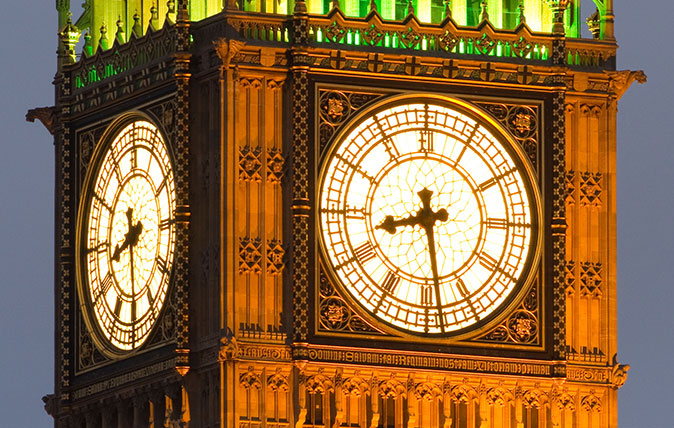Curious Questions: Why do we still use the QWERTY keyboard?
The strange layout of keyboards in the Anglophone world is as bafflingly illogical. Martin Fone, author of 'Fifty Curious Questions', investigates.


I’m not the greatest of typists; I’m very much of the two-stubby-finger variety. In addition to my poor digital dexterity, I put it down to the layout of the keyboard. Who came up with it, and why do we persist in using it?
The first practical typewriter was developed as long ago as 1868 and patented in the US by Christopher Latham Scholes. It had a moveable carriage, a lever for turning paper from line to line, and a keyboard which was laid out in alphabetical order.
However, there was a fundamental problem with the layout of the keyboard: when typists worked quickly and used keys that were adjacent to each other, the keys kept jamming. This meant that the typist had to stop to free the keys.
Worse still, the keys on the earliest typewriters struck the back of the paper, and so mistakes became apparent only when the paper was removed from the machine.

Scholes scratched his head, realised he was unable to solve the problem of the sticking keys, and concocted a Plan B – a disposition of the characters in a way that would slow the typist down.
After much experimentation and using a study of letter-pair frequency prepared by the brother of Scholes’s principal financial backer, Amos Densmore, he settled on the QWERTY arrangement. He considered the new arrangement important enough to include it in his next patent application in 1878. Scholes went into PR overdrive, claiming that the new keyboard’s arrangement of letters was scientific and would boost speed and efficiency.
The reality was anything but. The most accessible row of the typewriter keyboard is the middle one. Although about 70 per cent of words in English can be typed using the letters A, D, E, H, I, N, O, R S, and T, only A appears on the middle row.
Exquisite houses, the beauty of Nature, and how to get the most from your life, straight to your inbox.

Only about three hundred English words can be typed using the right hand alone whereas around three thousand can be typed using just the left. As most people are right-handed, the keyboard layout favours our left-handed brethren. At the very least, the hands have to travel further over the keyboard than would have been the case with an alphabetic layout.
For office technology at the time, the advantages of having a typewriter outweighed the disadvantages in terms of speed and efficiency that the QWERTY keyboard imposed, and so typists learned the new layout and got on with it.
There have been attempts to (re)introduce a more logical keyboard arrangement. The most successful was the Dvorak Simplified Keyboard (DSK), developed and patented by August Dvorak, cousin of the Czech composer, and revealed to an unreceptive world in 1932.
Dvorak had been inspired by the work of Frank and Lillian Gilbreth, pioneers in the field of workplace efficiency. Unfortunately, it never caught on – although even on modern computers, you can still find the layout as an option buried deep in the software settings.

It seems strange that we have continued to use a solution to a technological deficiency of the earliest typewriters, particularly as almost all of us now pound away on keyboards that don’t have keys that have to make an impression on a piece of paper. This is clearly an interesting example of how we have adapted to technological deficiencies rather than changing the technology.
Martin Fone is author of 'Fifty Curious Questions', from which this piece is an excerpt – find out more about his book or you can order a copy via Amazon.

Curious Questions: Why do the British drive on the left?
The rest of Europe drives on the right, so why do the British drive on the left? Martin Fone, author

Credit: alamy
Curious Questions: Why is a day divided into twenty-four hours?
We've been counting things in convenient chunks of ten for thousands of years, so why on earth is a day

Curious Questions: How do you make the perfect cream scone?

Curious Questions: Do you get wetter running or walking in the rain?
Does running in the rain get you out of it quicker? Or do you just run into more water more

Credit: Alamy
Curious Questions: Do carrots really help you see in the dark?
We've all been given the familiar advice by parents anxious to get us eating our vegetables, but is there any

Credit: Photo by FLPA/Hugh Lansdown/REX/Shutterstock – Bullet Ant (Paraponera clavata) adult, standing on leaf in rainforest, Tortuguero N.P., Limon Province, Costa Rica
Curious Questions: What is the world’s most painful insect sting – and where would it hurt the most?
Can you calibrate the intensity of different insect stings? Martin Fone, author of 'Fifty Curious Questions', investigates.
After graduating in Classics from Trinity College Cambridge and a 38 year career in the financial services sector in the City of London, Martin Fone started blogging and writing on a freelance basis as he slipped into retirement. He has developed a fearless passion for investigating the quirks and oddities of life and discovering the answers to questions most of us never even think to ask. A voracious reader, a keen but distinctly amateur gardener, and a gin enthusiast, Martin lives with his wife in Surrey. He has written five books, the latest of which is More Curious Questions.
